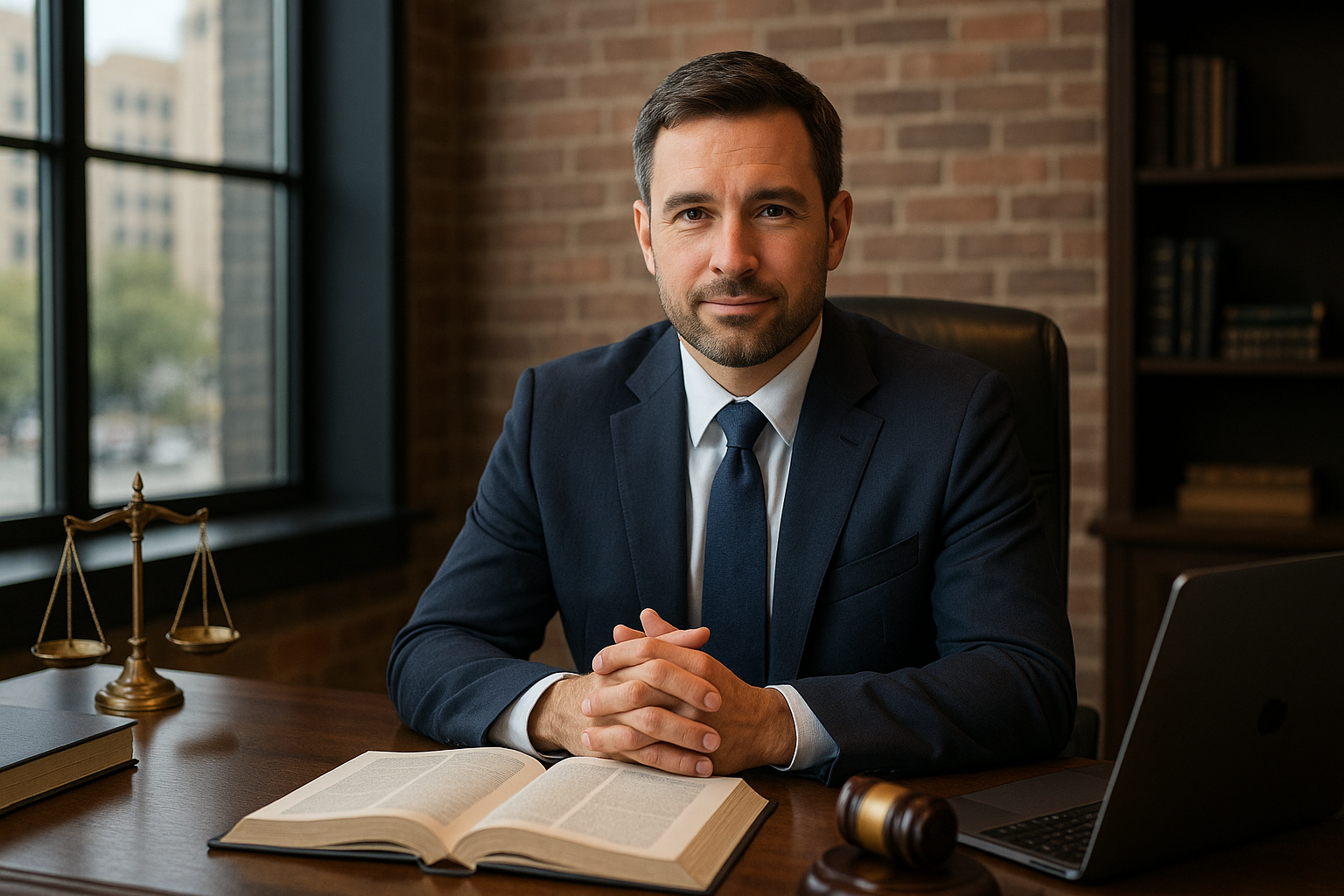
Affordable divorce lawyers in San Antonio are becoming a critical resource for Texans seeking justice without financial strain. These professionals help clients navigate a difficult chapter while preserving both emotional and financial stability. When people hear the word “divorce,” they often expect drawn-out court battles and massive legal fees. However, many are surprised to discover there are practical and cost-effective legal options available in San Antonio. This article explores important facts about affordable divorce lawyers in San Antonio every Texan should know. It presents essential information for making confident and informed choices during one of life’s most stressful experiences.
Understanding the Role of an Affordable Divorce Lawyer
Divorce law involves more than just ending a marriage. It includes protecting property, rights and long-term interests. Affordable lawyers perform the same critical functions as expensive ones, including legal filings, court representation and negotiation. They analyze the facts of each case and offer customized strategies to ensure fairness. This is especially important in contested divorces involving disputes over property or child custody.
These legal professionals also keep clients focused on legal priorities instead of emotional tension. They explain the implications of each decision and ensure all documents are correctly completed. Their role is not limited to the courtroom. They also mediate when possible and push for settlements that avoid unnecessary conflict. This professional support helps maintain clarity and control.
The Value of Affordability Without Compromise
It is a common belief that lower cost equals lower quality. That assumption is often false when it comes to family law. Affordable divorce lawyers often operate with streamlined practices that reduce overhead. This allows them to offer services at reasonable rates without sacrificing quality. Clients benefit from personalized legal support and access to professional expertise without excessive billing.
Many of these lawyers work with payment plans or flat-fee models. These fee structures offer predictability, which is especially helpful during a time of financial stress. Lawyers who focus on affordability are not doing less. They are simply finding better ways to serve more people. This approach makes legal protection accessible and fair for all Texans.

Why Local Knowledge in San Antonio Matters
San Antonio has its own family court system, judges and procedures. Local attorneys understand how these unique elements influence divorce outcomes. Affordable divorce lawyers in San Antonio use their familiarity with regional courts to help clients avoid unnecessary delays. They know which forms are required, how hearings are scheduled and what local judges typically expect.
This knowledge makes a significant difference in contested or complex cases. Lawyers who practice regularly in San Antonio can anticipate challenges and resolve them early. They also maintain working relationships with court personnel and other local professionals. These connections help streamline the process and ensure more consistent outcomes. Choosing a local lawyer gives clients a strong advantage.
Legal Areas Covered by Divorce Lawyers
Divorce law includes many moving parts. Affordable divorce lawyers in San Antonio handle all critical areas. This includes asset division, debt responsibility, child custody, child support and spousal support. They evaluate each element of the divorce to ensure nothing is overlooked. This attention to detail helps protect a client’s legal and financial interests.
Asset division can include homes, vehicles, retirement accounts and even business interests.
Support calculations follow Texas law and take income, expenses and family needs into account. Child custody arrangements must meet legal requirements and serve the best interests of the child. An experienced lawyer ensures that all of these matters are handled correctly and fairly.
Types of Divorce Services Available
There is no one-size-fits-all divorce. Affordable divorce lawyers in San Antonio offer several service options. Uncontested divorce services are for couples who agree on the major terms.
These cases often resolve faster and at lower cost. Contested divorce services are needed when couples disagree over property, custody or support.
Many attorneys also offer limited-scope representation. This means the lawyer handles only certain parts of the case. For example, a client may need help drafting documents or preparing for a hearing. This flexible approach helps clients control costs while still receiving legal support. Virtual consultations and document filing services are also growing in popularity.

How to Choose the Right Attorney
Choosing the right lawyer is one of the most important steps in any divorce. Start by reviewing credentials, experience and reviews. Affordable lawyers with strong reputations usually offer free or low-cost consultations. Use that time to ask about the lawyer’s process, communication style and payment options.Be clear about your budget and expectations from the start.
A trustworthy lawyer will explain the fee structure in plain terms. They will also outline a plan for handling your case and explain what to expect. Avoid lawyers who make unrealistic promises or avoid answering questions. Look for a combination of experience, transparency and genuine interest in your situation. Trust and comfort matter just as much as cost.
Legal Risks of DIY Divorce in Texas
Some people consider filing for divorce without a lawyer. While this may seem like a way to save money, it often leads to problems. Texas divorce laws are specific and mistakes can be costly. Improperly completed documents may result in delays or unfavorable rulings.
Judges cannot give legal advice or correct filing errors during hearings.
The risks increase when children or significant property are involved. DIY divorce may overlook hidden financial issues or lead to unfair custody arrangements. Affordable divorce lawyers in San Antonio prevent these issues by guiding clients through each step. They ensure that all paperwork meets legal standards and deadlines. Their involvement increases the chance of a smoother and more favorable outcome.
Benefits of Legal Support During Emotional Times
Divorce is both a legal and emotional process. It is often filled with stress, confusion and uncertainty. Affordable divorce lawyers provide structure and clarity during this time.
They help clients stay grounded and make decisions based on facts, not emotions.
This support is especially important when disputes arise.
Lawyers also serve as a buffer between spouses. They handle negotiations, reduce direct conflict and protect their client’s well-being. By managing the communication and legal strategy they ease the emotional burden. This helps clients focus on their future rather than reliving painful events. Emotional stability contributes to better long-term outcomes.
Payment Models That Fit Real Budgets
Cost is a real concern for many Texans. Affordable divorce lawyers in San Antonio offer several ways to make legal help more accessible. Flat-fee billing is a popular option. This covers specific services for one set price. It provides clarity and eliminates surprise charges.
Hourly billing is still available for more complex cases. However, many lawyers work with clients to keep those hours reasonable. Payment plans allow clients to pay in monthly installments instead of large upfront fees. Some attorneys also adjust pricing based on income or case type. These flexible models allow clients to secure legal help without financial distress.
| Payment Model | Description |
| Flat-Fee Billing | Covers specific legal services for one set price with no hidden costs. |
| Hourly Billing | Charges based on time spent, typically used for complex or contested cases. |
| Payment Plans | Allows clients to pay legal fees in manageable monthly installments. |
| Sliding Scale Fees | Adjusts the cost of services based on the client’s income level. |
| Limited-Scope Services | Offers help with specific parts of a case, reducing overall cost. |
Avoiding Hidden Fees and Misunderstandings
Transparency is key when hiring a lawyer. Make sure you understand what is included in the service agreement. Ask whether court filing fees, document preparation and phone consultations are billed separately. Affordable divorce lawyers in San Antonio will explain all costs clearly. This prevents confusion and protects your financial interests.
Read the agreement before signing. Request a written breakdown of costs and payment expectations. If anything seems unclear, ask questions before moving forward.
Honest lawyers will answer fully and directly. If someone avoids the topic, consider that a red flag.
Timing and Strategy in Divorce Filing
When to file matters more than many people think. Filing first may offer procedural advantages. It sets the timeline and allows you to present your position first in court.
Affordable divorce lawyers can assess your circumstances and help you choose the best time to act. Waiting too long could affect financial claims or custody rights.
The initial filing also defines whether a divorce is contested or uncontested. That designation shapes the legal strategy and timeline. Lawyers prepare accordingly and guide clients through the required steps.Acting at the right time protects your interests and supports your goals.
Strategic timing is part of effective legal planning.
Remote Legal Services and Accessibility
Modern legal practices are more flexible than ever. Many affordable divorce lawyers in San Antonio offer virtual meetings. This helps clients save time and money on travel. It also makes legal services more accessible for those with busy schedules. Online document sharing and electronic signatures simplify the process even further.
Virtual services do not reduce quality. Lawyers still provide personal support and guidance.
Clients enjoy the same attention and legal protection. Remote access makes it easier to maintain momentum in the case. Technology is helping more people get the help they need.
The Future After Divorce
Divorce is the end of one chapter but it is also the beginning of another. The right legal help lays the groundwork for stability and growth. Affordable divorce lawyers in San Antonio work to protect your future. They ensure that settlements are fair, enforceable and clear.
They also help with post-divorce modifications if your situation changes.
This long-term support matters. It gives you peace of mind as you move forward.
You know your legal rights have been protected and you can focus on building a new life with fewer complications. Confidence starts with proper legal guidance.

Final Thoughts on Legal Access
Many people believe they cannot afford legal help. But the truth is that options exist for every budget. Affordable divorce lawyers in San Antonio continue to serve clients with professionalism and care. They meet families where they are and help them through hard timesand they make justice accessible.
This article has highlighted important facts about affordable divorce lawyers in San Antonio every Texan should know. It has shown that quality legal help does not have to come at a high cost. By choosing wisely, asking the right questions and acting early Texans can protect their rights. With the right support the divorce process can be manageable and even empowering.
Every Texan deserves access to legal help and affordable attorneys make that possible. The journey of divorce is personal but no one has to take it alone. Support is available and information is power.
And knowing the important facts about affordable divorce lawyers in San Antonio every Texan should know is the first step toward a better outcome.
Other Related Articles:
- Breaking Down the Steps of Divorce Lawyers In Texas Free Consultation
- Is Divorce Lawyer In Texas the Best Option for You?
- How to Handle Cost Of Divorce In Texas the Right Way
- Are Lawyer Consultation Fees Refundable in Texas Divorce Cases?
- Free vs. Paid Divorce Attorney Consultations: What’s the Difference?
- Cost for Divorce in Texas: How to Plan for Legal and Hidden Fees
- The Do’s and Don’ts of Using Texas Divorce Online Services
- Understanding the Role of a Mediator in Texas Divorce Law: Expert Advice and Tips
- The Roles of a Collaborative Divorce Lawyer
- How Much Is a Divorce in Texas: From Simple to Complex Cases





